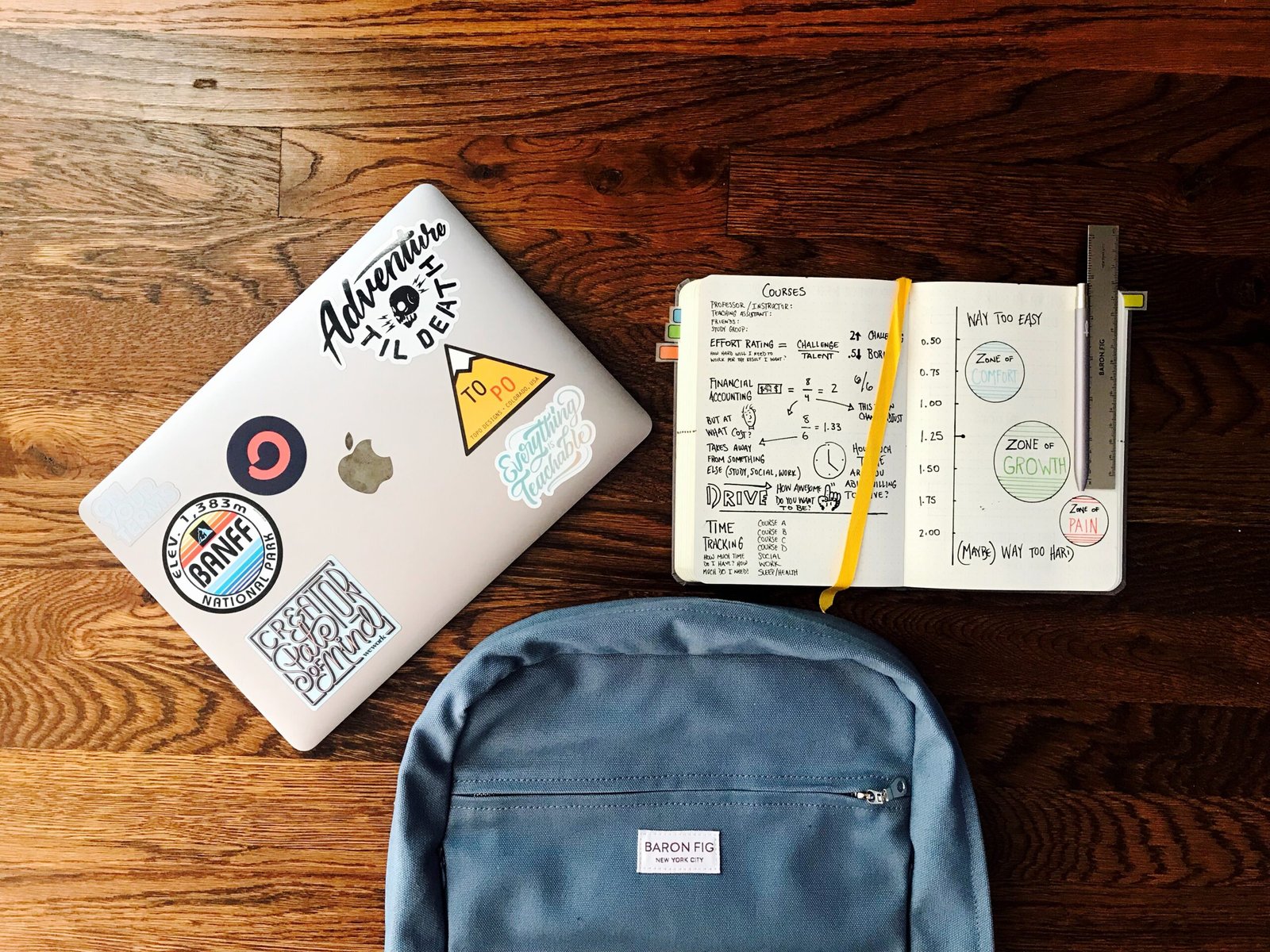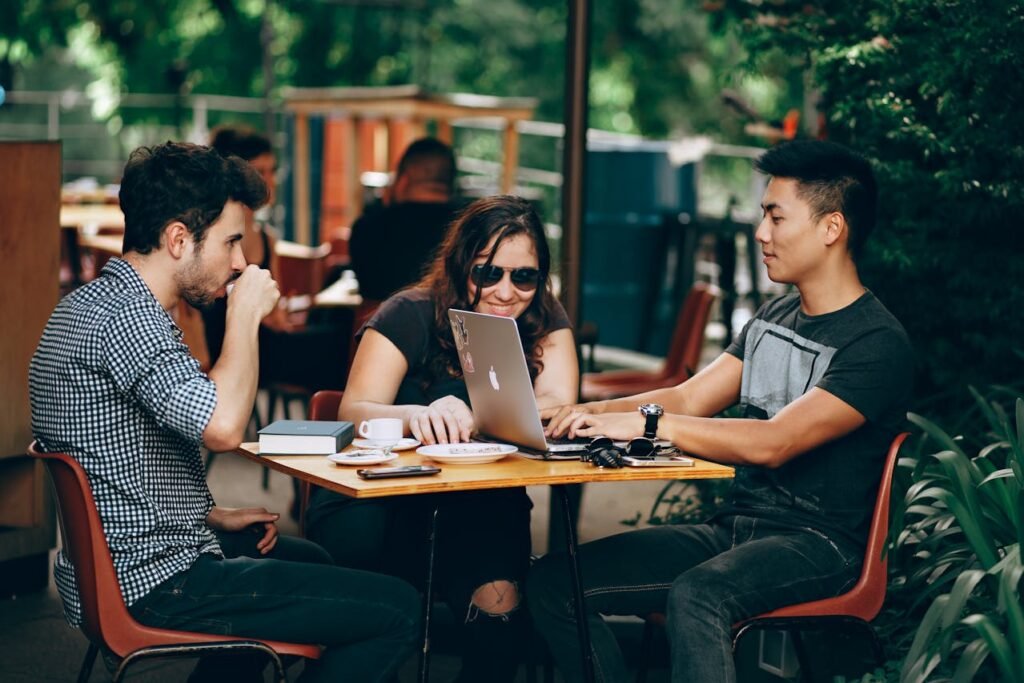Starting your journey as a first-time international student is both exciting and a little nerve-wracking. You’re not just going to a new school—you’re stepping into a whole new culture, lifestyle, and way of thinking. Whether you’re moving across a continent or halfway around the world, the experience will change you in the best possible ways.
But let’s be real: the first few weeks can feel overwhelming.
There are forms to fill out, new people to meet, systems to figure out, and cultural norms that might feel completely unfamiliar. That’s why having the right guidance early on can make all the difference.
If you haven’t already, we recommend starting with our article: How to Prepare for Studying Abroad: A Complete Checklist — it covers everything you need before departure.
This article, however, is all about what happens next—once you’ve landed, settled in, and are trying to navigate life as a new international student. From building connections to taking care of your wellbeing, here are the most helpful study abroad tips to support you in this exciting new chapter.
2. Learn About the Country and Culture Before You Go
One of the smartest things you can do as a first-time international student is to learn about your host country before you arrive. The more familiar you are with the local culture, the more confident you’ll feel in those first days and weeks.
Start with the basics:
What are the common customs and traditions?
How do people greet each other?
What’s considered polite or rude in daily interactions?
Are there any social or legal rules that differ from your home country?
Understanding these things can help you avoid awkward moments and show respect for your new environment—which locals really appreciate.
Quick Tips for Cultural Adjustment:
Watch videos or vlogs from students already living there.
Follow local news outlets or social media accounts.
Learn a few key phrases in the local language (even just “hello” and “thank you” go a long way!).
Be open-minded and avoid judging things just because they’re different.
Adjusting to a new culture takes time, and it’s totally normal to feel out of place at first. But with curiosity, patience, and a bit of preparation, you’ll feel at home much faster than you expect.
Advice for international students: Don’t expect to “fit in” overnight. Culture is something you grow into by being present, listening, and learning every day.
3. Get Involved on Campus
One of the fastest ways to feel more connected as a first-time international student is to get involved in campus life—even if you’re shy or still adjusting. Your university isn’t just a place to study; it’s a place to belong.
Most schools offer a variety of activities that are designed to support and engage new international students like you. These might include:
Orientation events and welcome sessions
International student associations
Language exchange meetups
Cultural clubs and hobby groups
Volunteering and campus ambassador programs
Getting involved helps you:
Build friendships and fight homesickness
Practice the local language or English in real life
Discover new interests
Understand the culture from people your own age
Tip for international students: Don’t wait to feel “ready” to join—sign up early, show up, even if it feels awkward at first. Everyone else is looking for connection too.
Being part of something outside the classroom will help you build a support system, stay emotionally balanced, and enjoy your experience so much more.
4. Don’t Be Afraid to Ask Questions
When you’re new to a country, a campus, and sometimes even a language, it’s totally normal to feel unsure about things. But here’s the truth: everyone expects you to have questions—and asking them is not a sign of weakness, it’s actually one of your greatest strengths.
Whether it’s about:
How to register for classes
Where to buy affordable groceries
How public transport works
Or even how to open a bank account…
Ask. Every. Time.
Who Can You Ask?
International student office: They’re literally there to support you.
Academic advisors: Can help you plan your courses and manage your workload.
Resident assistants or student mentors: Great for life-on-campus advice.
Fellow students: Don’t underestimate how helpful your peers can be!
International student advice: There’s no such thing as a “silly” question when you’re adjusting to a new life. Everyone was new once.
Remember, supporting international students is part of the university’s mission—and there are whole teams dedicated to helping you succeed. You’re never alone in this.
Advice for international students: The sooner you ask, the quicker you learn. And chances are, someone else has the same question you’re thinking of.
5. Manage Your Time and Budget Wisely
One of the biggest adjustments for first-time international students is learning to manage both time and money independently—often for the first time. Between classes, social life, and day-to-day responsibilities, it’s easy to feel stretched or overwhelmed.
But with a few smart habits, you can stay on top of everything and actually enjoy the experience.
Time Management Tips:
Use a planner or digital calendar to track classes, assignments, and events.
Break larger tasks into smaller chunks and spread them out across the week.
Set aside time for rest and fun—burnout doesn’t help anyone.
Don’t leave everything until the last minute. Procrastination is a common struggle for international students adjusting to new academic systems.
Study abroad tip: Every hour you plan well is an hour saved for exploring, relaxing, or meeting new friends.
Budgeting Like a Pro:
Track your expenses weekly using apps like Mint, Splitwise, or Revolut.
Prioritize essentials (rent, food, transport) and set a monthly spending limit.
Cook at home when possible—it saves money and gives you a taste of home.
Look for student discounts on travel, food, tech, and entertainment.
Tips for international students: It’s okay to spend on things that matter to you—just plan for them. Smart budgeting = more freedom, not less.
With good time and money habits, you’ll avoid stress, gain independence, and make the most of your study abroad journey—both academically and socially.
6. Take Care of Your Health and Wellbeing
Studying abroad isn’t just an academic challenge—it’s a personal one too. Being far from home, adjusting to a new environment, and managing everything on your own can take a toll on both your physical and mental health.
That’s why one of the most important pieces of advice for international students is: don’t ignore your wellbeing.
Look After Your Physical Health
Register with a local doctor or student health clinic as soon as you arrive.
Make sure you understand how your student health insurance works—what’s covered, and where to go if you’re sick.
Try to eat balanced meals, stay hydrated, and move your body regularly (even a short daily walk helps).
Prioritize Mental and Emotional Health
Feeling homesick, anxious, or emotionally drained? You’re not alone. Many new international students experience this—especially in the first few months.
Here’s how to support your mental wellbeing:
Talk to someone you trust (friend, counselor, or support group).
Use your university’s international student support services—most schools offer free counseling.
Maintain small routines from home to feel grounded.
Give yourself time to adjust. Culture shock and emotional ups and downs are completely normal.
Note: Supporting international students means recognizing that emotional wellbeing matters just as much as academic success.
Tip for international students: Self-care isn’t selfish—it’s what allows you to grow, connect, and enjoy this life-changing experience fully.
Prioritize Mental and Emotional Health
Feeling homesick, anxious, or emotionally drained? You’re not alone. Many new international students experience this—especially in the first few months.
Here’s how to support your mental wellbeing:
Talk to someone you trust (friend, counselor, or support group).
Use your university’s international student support services—most schools offer free counseling.
Maintain small routines from home to feel grounded.
Give yourself time to adjust. Culture shock and emotional ups and downs are completely normal.
7. Be Patient with Yourself
Here’s something every first-time international student needs to hear:
You don’t have to figure everything out right away.
Living and studying in a new country is a huge step, and it comes with a mix of excitement, confusion, and challenge. It’s okay if you don’t adapt instantly. It’s okay if you get lost, make mistakes, or feel out of place.
In fact—that’s part of the process.
What Patience Looks Like:
Giving yourself time to adjust to a new language, system, or culture
Forgiving yourself when things don’t go perfectly
Reminding yourself that growth takes time
Celebrating small wins—like navigating the metro alone or speaking up in class
Advice for international students: Don’t compare your journey to anyone else’s. Everyone adapts at their own pace, and that’s perfectly normal.
Conclusion
Being a first-time international student is a journey filled with learning—not just in the classroom, but in life. Every challenge you face, every awkward moment, every small success—it all shapes you into a more confident, capable version of yourself.
The tips we’ve shared here aren’t about being perfect. They’re about helping you feel supported, prepared, and empowered as you begin this exciting new chapter.
If you’re still getting ready for your move, make sure to check out our Complete Checklist on How to Prepare for Studying Abroad — it covers everything from documents to packing, so you can leave home with confidence.
And always remember: you don’t have to go through this journey alone.
Goalantis is here to support you, every step of the way.











